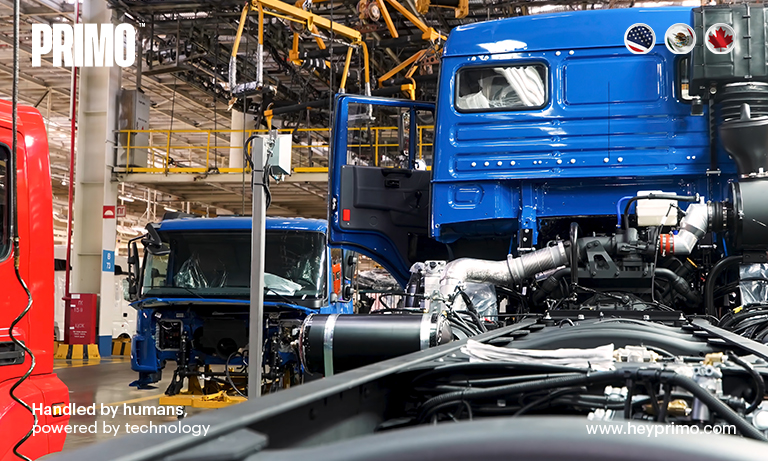
Tariffs Threaten Class 8 Truck Production, Raising Fears of Capacity Shortfall
Tariffs on steel, aluminum, and Chinese components are squeezing North American Class 8 truck manufacturers, driving up production costs and forcing adjustments to assembly strategies. According to industry executives, these financial pressures could lead to reduced output of new trucks—potentially exacerbating equipment shortages just as freight demand shows signs of recovery.
Manufacturers Face Margin Pressures
The Biden administration’s retention of Trump-era tariffs, combined with new trade restrictions on EV batteries and semiconductors, has increased material costs for truck builders. Some OEMs are reevaluating supply chains, shifting sourcing to avoid duties, but delays and higher expenses persist. Analysts warn that if production slows further, fleets may struggle to replace aging trucks, tightening capacity in an already constrained market.
Spot Market Strain Looms
With fewer new trucks entering the fleet, carriers could face higher maintenance costs and reduced efficiency. Spot market rates may climb as available capacity shrinks, particularly for time-sensitive or specialized freight.
“Tariffs cloud Class 8 truck production, and capacity shortages could soon follow,” noted a logistics executive. “Shippers need partners who can secure reliable power quickly—before the crunch hits.”
PRIMO addresses this challenge head-on with immediate capacity solutions, leveraging its:
Proactive Measures for Shippers
To mitigate risk, experts recommend:
As tariffs reshape the trucking landscape, PRIMO’s agile, tech-driven approach provides stability amid uncertainty.
For the full story on tariffs and truck sales, visit Transport Topics.